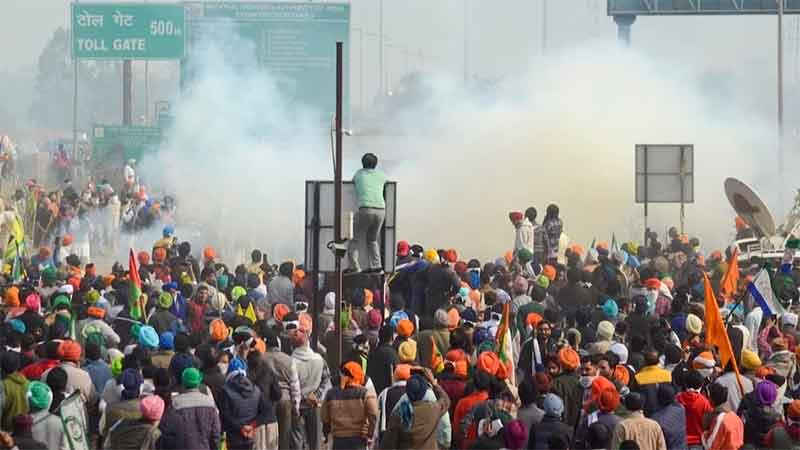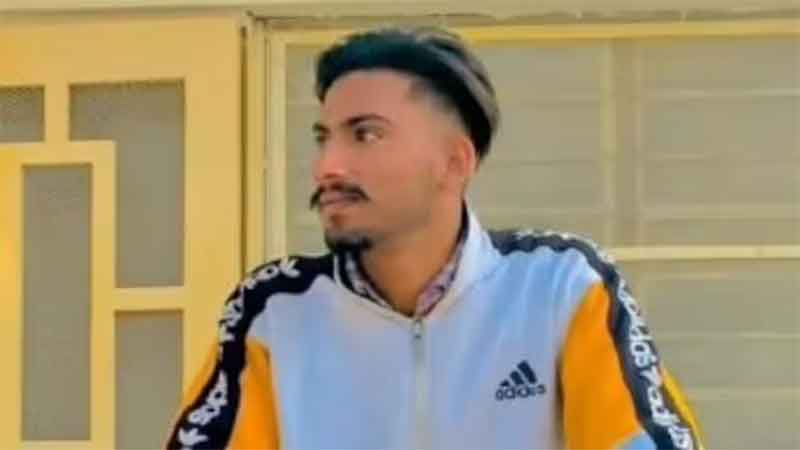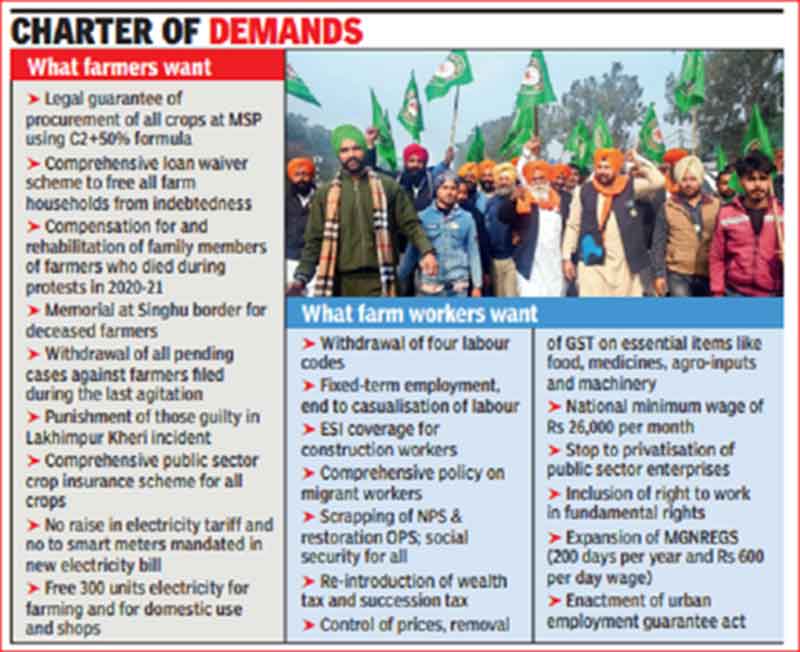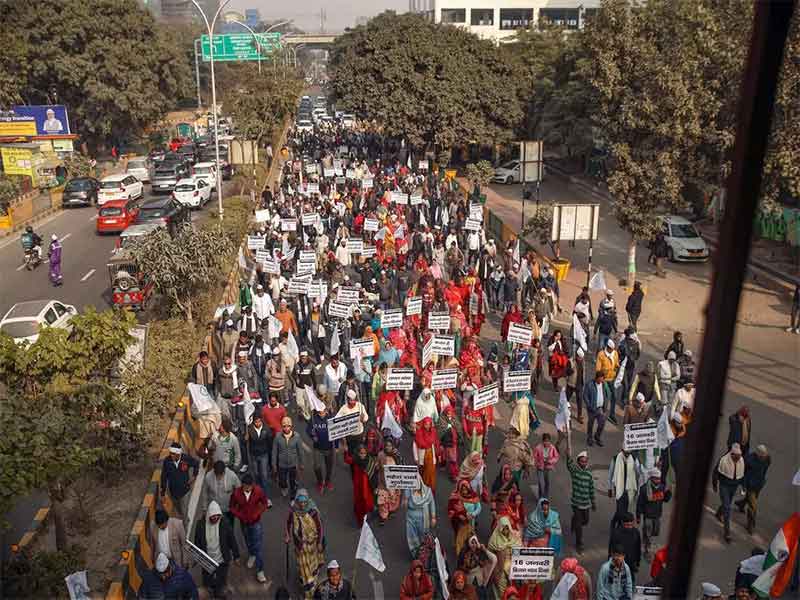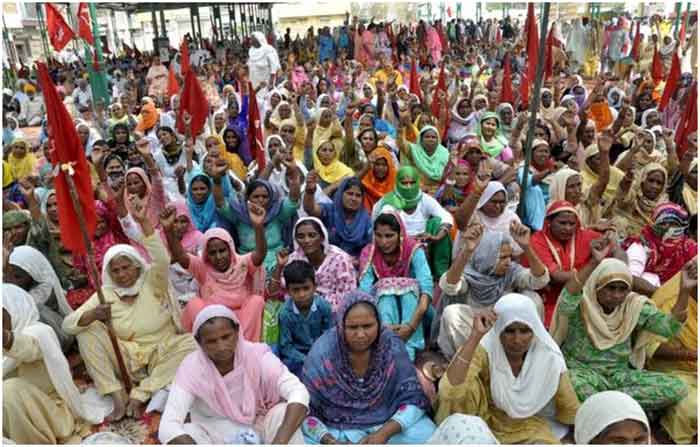
Sir,
Your article “Why Steinbeck’s The Grapes of Wrath Remains the Most Memorable Saga of Displaced Farmers and Migrating Workers” that appeared in Countecurrents on April 8, 2021, presented us a scope to visualise the current distress of the farming communities, the peasants, workers, who are getting dispossessed, dislodged, against the backdrop of the novel John Steinbeck wrote. ‘The Grapes of Wrath’ was first published, as the wikipedia volunteers noted, on April 14, 1939. This year, on April 13, the hundreds of thousands of farmer and workers who are continuing their sit-in protest around Delhi will celebrate Baishakhi, which is usually celebrated on April 13 or 14 as the first day of Baishakh, and on that day they will also be completing 150 days of their sit-in. After 82 long years a scene is almost being re-staged. The same depeasantisation, displacement that is going on in an accelerated rate in lands that the Green Revolution touched, and at a greater speed later after being seized by liberalisation, globalisation. But then, are we also noticing here this side of the story as Steinbeck present?
“This is the zygote.2 For here “I lost my land’’ is changed; a cell is split and from its splitting grows the thing you hate— “We lost our land.’’ The danger is here, for two men are not as lonely and perplexed as one. And from this first “we’’ there grows a still more dangerous thing: “I have a little food’’ plus “I have none.’’ If from this problem the sum is “We have a little food,’’ the thing is on its way, the movement has direction. Only a little multiplication now, and this land, this tractor are ours.
“The two men squatting in a ditch, the little fire, the side-meat stewing in a single pot, the silent, stone-eyed women; behind, the children listening with their souls to words their minds do not understand. The night draws down. The baby has a cold. Here, take this blanket. It’s wool. It was my mother’s blanket—take it for the baby. This is the thing to bomb. This is the beginning—from “I’’ to “we.’’
“If you who own the things people must have could understand this, you might preserve yourself. If you could separate causes from results, if you could know that Paine, Marx, Jefferson, Lenin,3 were results, not causes, you might survive. But that you cannot know. For the quality of owning freezes you forever into “I,’’ and cuts you off forever from the “we.’’
“The Western States are nervous under the beginning change. Need is the stimulus to concept, concept to action. A half-million people moving over the country; a million more restive, ready to move; ten million more feeling the first nervousness.
“And tractors turning the multiple furrows in the vacant land.” | End of Chapter 14, The Grapes of Wrath
We have seen sparks of this ‘zygote’ in this present movement too; as in almost all movements, after these movements attain some critical values, we generally see flashes of such zygotes. As the night set in on January 25, when amidst the chill, thousands of tractors roaming and thousands of youth were playing loudly the song ‘Modi Ji Thari Tob Kade Hum Dilli Agaye’ in the sound systems, and when hundreds of farmer youth and local youth suddenly started dancing together to the tune of this song near the Tikri Border, we could see the celebration of We, and this was on the eve of the historical Farmers Republic Day Tractor March. When we saw those hundreds of Haryanvi youth who regularly brought milk to the farmers, when we saw hundreds of volunteers silently bringing supplies of firewood after the dusk, carrying loads of wood on their shoulders from tractor trollies coming from hundreds of kilometre away to the tents orgainsed by the side of the expressway, when we saw food for hundreds being cooked and distributed everyday in each of the langars, we saw the formation of this ‘we’. When we saw thousands of tents getting changed from winter-lodgings to summer-lodgings of different design and made of different material than those of the winter, we saw this transformation. Rohit Kumar presented a glimpse of this in his beautiful report in the WIRE that appeared on March 23:
“Around the middle of March, I asked a group of farmers from Raguana village in Haryana’s Sirsa district how long they were planning to stay on at Tikri.
“Chaubees tak (Till 24),” they answered.
“I asked them, “Chaubees tareek tak (Till the 24th)?”
“Giving me a slightly irritated look, they replied, “2024 tak (Till the year 2024).”
“Abhi tak toh mela thha (It was a carnival up until now),” they tell me. “Asli aandolan toh ab shuru hua hai (The real protest has only just begun).”
“They told me their village has already prepared a roster for the next seven to ten months of farmers who will come to stay at Tikri ten days at a time. Since the onset of summer, many farmers have started constructing bamboo abodes with high roofs, ceiling fans and coolers at Delhi’s borders. Some have even fenced their new ‘houses’ in with bamboo and decorated them with potted plants.”
No need to elucidate this point farther.
This farmers protest is generating many artworks, songs and other cultural expressions. Though ‘The Grapes of Wrath’ is only a novel, its characters, particularly Tom Joad, was the inspiration behind some worthy manifestations in the cultural domain. Let us conclude this piece with lyrics of two such songs, one penned in 1940 and oother in 1995, hoping that the readers will appreciate those.
- Tom Joad
Words and Music by Woody Guthrie, 1940 (https://www.woodyguthrie.org/Lyrics/Tom_Joad.htm)
Tom Joad got out of the old McAlester Pen;
There he got his parole.
After four long years on a man killing charge,
Tom Joad come a-walkin’ down the road, poor boy,
Tom Joad come a-walkin’ down the road.
Tom Joad, he met a truck driving man;
There he caught him a ride.
He said, “I just got loose from McAlester Pen
On a charge called homicide,
A charge called homicide.”
That truck rolled away in a cloud of dust;
Tommy turned his face toward home.
He met Preacher Casey, and they had a little drink,
But they found that his family they was gone,
He found that his family they was gone.
He found his mother’s old-fashion shoe,
Found his daddy’s hat.
And he found little Muley and Muley said,
“They’ve been tractored out by the cats,
They’ve been tractored out by the cats.”
Tom Joad walked down to the neighbor’s farm,
Found his family.
They took Preacher Casey and loaded in a car,
And his mother said, “We’ve got to get away.”
His mother said, “We’ve got to get away.”
Now, the twelve of the Joads made a mighty heavy load;
But Grandpa Joad did cry.
He picked up a handful of land in his hand,
Said: “I’m stayin’ with the farm till I die.
Yes, I’m stayin’ with the farm till I die.”
They fed him short ribs and coffee and soothing syrup;
And Grandpa Joad did die.
They buried Grandpa Joad by the side of the road,
Grandma on the California side,
They buried Grandma on the California side.
They stood on a mountain and they looked to the west,
And it looked like the promised land.
That bright green valley with a river running through,
There was work for every single hand, they thought,
There was work for every single hand.
The Joads rolled away to the jungle camp,
There they cooked a stew.
And the hungry little kids of the jungle camp
Said: “We’d like to have some, too.”
Said: “We’d like to have some, too.”
Now a deputy sheriff fired loose at a man,
Shot a woman in the back.
Before he could take his aim again,
Preacher Casey dropped him in his track, poor boy,
Preacher Casey dropped him in his track.
They handcuffed Casey and they took him in jail;
And then he got away.
And he met Tom Joad on the old river bridge,
And these few words he did say, poor boy,
These few words he did say.
“I preached for the Lord a mighty long time,
Preached about the rich and the poor.
Us workin’ folkses, all get together,
‘Cause we ain’t got a chance anymore.
We ain’t got a chance anymore.”
Now, the deputies come, and Tom and Casey run
To the bridge where the water run down.
But the vigilante thugs hit Casey with a club,
They laid Preacher Casey on the ground, poor Casey,
They laid Preacher Casey on the ground.
Tom Joad, he grabbed that deputy’s club,
Hit him over the head.
Tom Joad took flight in the dark rainy night,
And a deputy and a preacher lying dead, two men,
A deputy and a preacher lying dead.
Tom run back where his mother was asleep;
He woke her up out of bed.
An’ he kissed goodbye to the mother that he loved,
Said what Preacher Casey said, Tom Joad,
He said what Preacher Casey said.
“Ever’body might be just one big soul,
Well it looks that a-way to me.
Everywhere that you look, in the day or night,
That’s where I’m a-gonna be, Ma,
That’s where I’m a-gonna be.
Wherever little children are hungry and cry,
Wherever people ain’t free.
Wherever men are fightin’ for their rights,
That’s where I’m a-gonna be, Ma.
That’s where I’m a-gonna be.”
(In the YOUTUBE a version of this could be found
- The Ghost of Tom Joad
Bruce Springsteen, 1995 (https://www.springsteenlyrics.com/lyrics.php?song=theghostoftomjoad)
Men walking ‘long the railroad tracks
Going someplace and there’s no going back
Highway patrol choppers coming up over the ridge
Hot soup on a campfire under the bridge
Shelter line stretching ’round the corner
Welcome to the new world order
Families sleeping in their cars in the southwest
No home, no job, no peace, no rest
Well the highway is alive tonight
But nobody’s kidding nobody about where it goes
I’m sitting down here in the campfire light
Searching for the ghost of Tom Joad
He pulls a prayer book out of his sleeping bag
Preacher lights up a butt and he takes a drag
Waiting for when the last shall be first and the first shall be last
In a cardboard box ‘neath the underpass
You got a one-way ticket to the promised land
You got a hole in your belly and a gun in your hand
Sleeping on a pillow of solid rock
Bathing in the city aqueduct
And the highway is alive tonight
Where it’s headed everybody knows
I’m sitting down here in the campfire light
Waiting on the ghost of Tom Joad
Tom said, “Mom, wherever there’s a cop beating a guy
Wherever a hungry newborn baby cries
Where there’s a fight against the blood and hatred in the air
Look for me, Mom, I’ll be there
Where there’s somebody fighting for a place to stand
Or a decent job or a helping hand
Wherever somebody’s struggling to be free
Look in their eyes, Mom, you’ll see me”
The highway is alive tonight
But nobody’s kidding nobody about where it goes
I’m sitting down here in the campfire light
With the ghost of old Tom Joad
A very good rendering of this song in video format can be seen in the YOUTUBE
Thank you.
Sandeep Banerjee is an activist who writes on political and socioeconomic issues and also on environmental issues. Some of his articles are published in Frontier Weekly. He lives in West Bengal, India. Presently he is a research worker. He can be reached at [email protected]
GET COUNTERCURRENTS DAILY NEWSLETTER STRAIGHT TO YOUR INBOX

